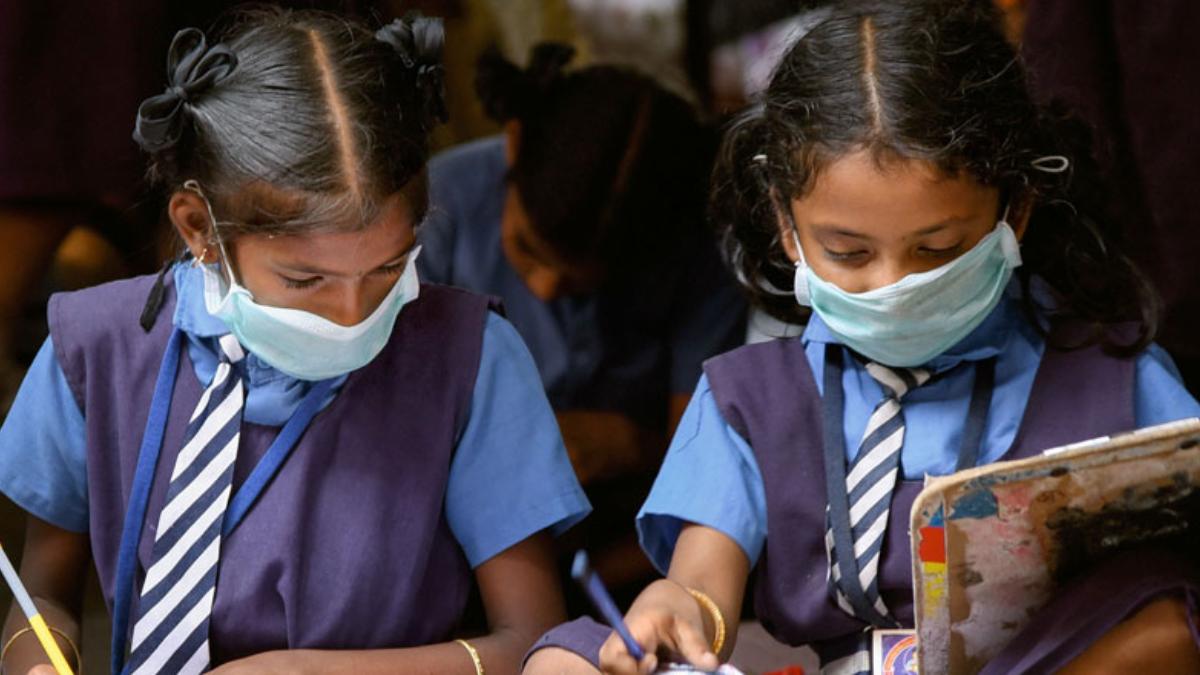
As schools get ready to open, parents wary of sending children

Even as the Centre prepares standard operating procedures (SOPs) for ‘Unlock 4’ that is set to begin on September 1 with much relaxation, it is still in consultation with states over the reopening of schools.
While reports emerged that the government planned to permit reopening of schools in a phased manner over the next two months, parents, across states, were wary of sending their children to schools amid rising COVID-19 cases across the country. That said, both government and private schools have made arrangement to welcome students with enough precautionary measures.
Karnataka Deputy Chief Minister and Higher Education Minister CN Ashwathnarayan, in an interview to a channel, said it would be appropriate for schools to start after Dussehra. “We need to go back and it’s just a matter of time. It would be appropriate to open after Dussehra,” the minister said.
“To ensure the continuity of academic activities, the government took a lot of measures. But that is not enough (when compared to physical classes).”
Schools in India are shut since March 2020 due to the pandemic. With the online education still remaining unreachable for many, some are curious to know when the physical classes will resume.
In Tamil Nadu, while the government has no plans to reopen schools anytime soon, the education department has formed a committee to prepare standard operating procedures for the functioning of the schools (as and when they reopen).
In Telangana, the government permitted online classes on various digital, TV, T-SAT platforms from September 1, 2020, in all schools. However, it said teachers have to attend schools regularly from August 27. “All teachers shall attend schools regularly from August 27 onwards, and shall prepare e-content and lesson plans,” the government said in a statement.
The Kerala government awaited the Centre’s direction while it gave a push for online education.
All over the world, the reopening of schools has not gone well with the rising COVID cases. It remained the biggest challenge for the governments to address.
At least 97,000 children around the US tested positive in the last two weeks of July, according to a report from the American Academy of Pediatrics and the Children’s Hospital Association. Several schools that reopened have shut again.
All of these concerned Indian parents. As per a survey done by LocalCircles, a citizens’ engagement platform, 62 per cent of parents said even if the government reopens schools on September 1, they would not be sending their children.
Only 23 per cent of them said ‘yes’, showing a willingness to send their children to schools and 15 per cent remained undecided. The survey included over 25,000 responses from 261 districts of India.
India’s COVID cases tally crossed 3.2 million mark on Wednesday (August 26), according to the Union Health Ministry.
As per the Centre’s direction, states have asked schools to take parents’ view on the reopening of schools. “We do not want to send our children to school unless there’s no alternative. That said the school authorities told us they are prepared to welcome students,” said Lakshmi, a parent whose kid is studying in a private school in Bangalore.
“The school informed us they can conduct classes in two different batches for primary and secondary (8 am-11 am and 1 pm-4 pm) thereby managing classrooms with students maintaining physical distancing.”
Similar move is aimed in Tamil Nadu as well. A teacher who is part of the committee preparing the SOPs said with two shifts, the number of students entering and leaving the school at the same time will be reduced. “Also, the break timing for classes will be changed. For instance, if Class I takes a break between 11 and 11.15 am, Class II will take between 11.15 and 11.30 am.”
Experts say that staggered reopening of educational institutions, reduced curriculum and hybrid learning, blending online and classroom models, are the way forward for the education sector.
(With inputs from Prabhakar Tamilarasu, Suresh Dharur and Prabhu Mallikarjunan)


